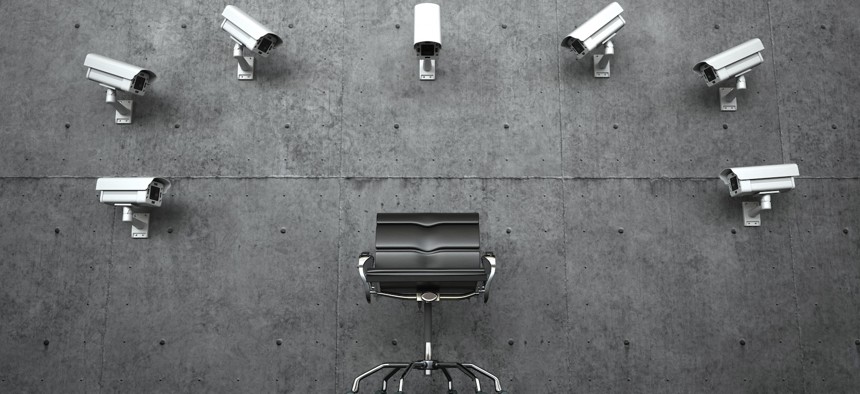Lawmakers propose a new federal office to regulate workplace surveillance tech

Westend61/Getty images
The new bill from Reps. Chris Deluzio, D-Pa., and Suzanne Bonamici, D-Ore., would also establish new employee rights and employer transparency rules around surveillance.
A pair of House Democrats have introduced legislation that would require employers to be more transparent about their use of surveillance technologies to monitor their workers.
The bill, known as the Stop Spying Bosses Act, was introduced on March 15 by Reps. Chris Deluzio, D-Pa., and Suzanne Bonamici, D-Ore., and would “prohibit, or require disclosure of, the surveillance, monitoring and collection of certain worker data by employers.”
Within government, the Department of Labor would also establish a “privacy and technology division” to regulate workplace surveillance technologies under the proposal.
Sens. Bob Casey, D-Pa., Cory Booker, D-N.J., and Brian Schatz, D-Hawaii, previously introduced similar legislation in the Senate in February 2023.
The legislation “will increase transparency in the workplace and protect workers’ rights by preventing the abuse of workplace surveillance and requiring employers to disclose any surveillance they conduct,” Bonamici said in a statement.
The proposals require employers who collect data on their workers or job applicants to disclose that information in a timely manner “that is conspicuous, freely accessible and readily available for viewing by any such covered individual of the employer (including on the internet in a manner that is freely accessible and machine readable).”
Workplaces would also be prohibited from conducting some surveillance activities on their employees, such as performing “off-duty data collection” or any activities that could interfere with union organizing.
The legislation also creates new rules empowering workers when it comes to the use of artificial intelligence tools and automated systems to make employment decisions, such as restricting the collection of health information unrelated to job performance, data on their engagement with labor organizations and the monitoring of employee activities “related to reporting the employer or such a third party or service provider for a violation of any other law.”
“It’s time to protect employees from the use of invasive surveillance technologies that allow bosses to track their workers minute by minute and move by move,” Deluzio said in a statement. “Workers deserve far better than a workday full of endless suspicion and surveillance; they should have a workplace with respect and dignity.”
The legislation has been endorsed by several worker advocacy organizations and unions, including the Communications Workers of America and the AFL-CIO.
Deluzio and Bonamici also teamed up to introduce legislation on March 12 to safeguard job applicants from AI-based hiring discrimination. That bill would similarly crack down on the growing use of automated decision-making systems in workplaces and would establish another new division at Labor, known as the “technology and worker protection division.”






